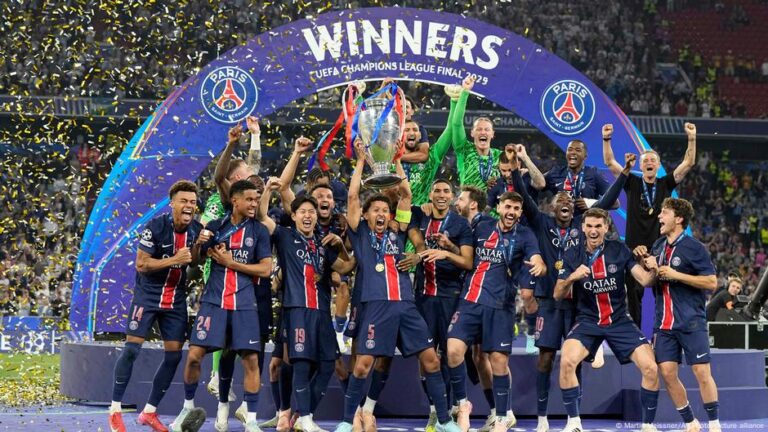What do I need to know about this season’s Champions League?
The new format of a 36-team league with eight matches continues this year, but perhaps the most exciting news comes about kickoff times.
The final will be held at 18:00 CET rather than 21:00, a first in the competition’s modern history. UEFA hopes the move will make the final more family-friendly, improve local transport options for traveling supporters and, pivotally, also reach more eyeballs in key markets around the world.
The Champions League group stage makes history by setting new distance records, as Europe’s biggest tournament grows into the continent’s furthest corners. This season, the easternmost (Kazakh team Kairat) and northernmost European teams (Norway’s Arctic Circle-based Bodo/Glimt) will compete in the group stage. It’s also the first time in 20 years that a Ukrainian team has not qualified for the group stage. Cypriot side Pafos and Belgian team Union Saint-Gilloise will debut in the tournament, and the tournament will see six teams from one nation, England, for the first time.
Speaking of the newly named and formatted league stage, there are some exciting games to look forward to. Bayern Munich host Chelsea in a rematch of the 2012 final on September 17. Newcastle United and new signing Nick Woltemade are dropped into the deep end as they face Barcelona. The Spanish side play defending champions Paris Saint-Germain on October 1, Liverpool and Florian Wirtz play Real Madrid on November 4, Arsenal host Bayern Munich on November 26 and Manchester City travel to the Spanish on December 10 to play Real Madrid, the most successful team in the competition.
Do the German teams have a chance?
From a German Bundesliga perspective, all eyes will naturally be on Bayern Munich. They have three particularly tricky games during the league phase against Chelsea, Arsenal and defending champions Paris Saint-Germain. Otherwise, they should feel confident about finishing in the top eight and qualifying directly for the round of 16.
For head coach Vincent Kompany’s team, the goal of winning the Champions League is ever-present. They currently might not be favorites, but after missing out on the final in Munich last season, Bayern will be hoping they can go better than the quarterfinals this time.
Borussia Dortmund and Eintracht Frankfurt might have a tougher time of finishing in the top eight as they face tougher opponents. Frankfurt though, have great recent history in European competition, memorably winning the Europa League just three years ago. This season, they have the makings of being a real surprise package, so they are worth keeping an eye on. Dortmund remain unpredictable, and it’s unclear what to expect of Bayer Leverkusen after they changed coaches just two games into the Bundesliga season.
Freiburg and Stuttgart will hope to shine in the second-tier Europa League this season, while Mainz will aim to make the most of a possible home advantage by reaching the third-tier Conference League final on May 27, 2026, which will be played in Leipzig.
What are the key dates?
The group stage starts on September 16 and runs until January 28. The knockouts begin in the middle of February (17-18 and 24-25) and run with two games every month following that until the final on May 30 in Budapest. It’s the first time a European Cup/Champions League final will be held in Hungary.
It’s also worth noting that the 2026 World Cup will start just 12 days after the Champions League final. Questions about load management will likely resurface at the start of 2026 as players cycle through a particularly busy New Year schedule and face the prospect of the biggest World Cup ever (48 teams, 104 games) just five months later.
The Europa League Final is in Istanbul on May 20, 2026, and the women’s Champions League final will be in Oslo on May 22, 2026.
Edited by: Chuck Penfold


